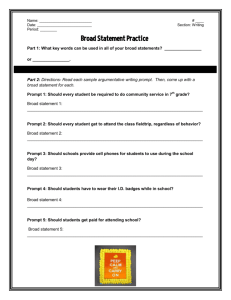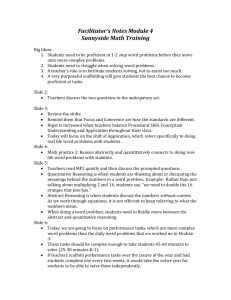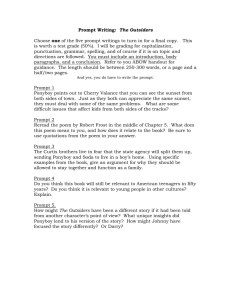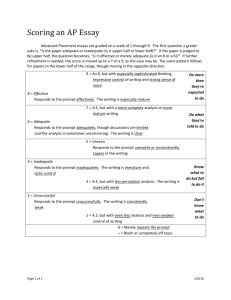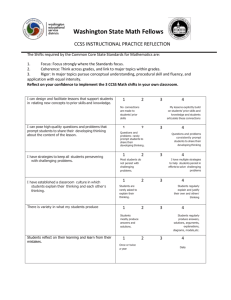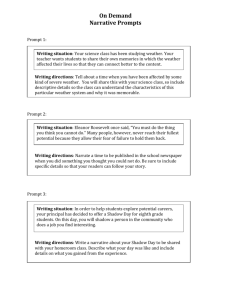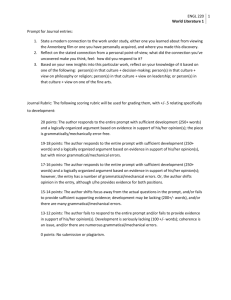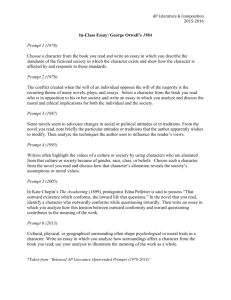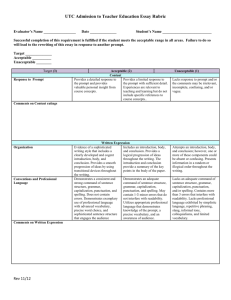Tackling the AP Language Argument Prompt
advertisement
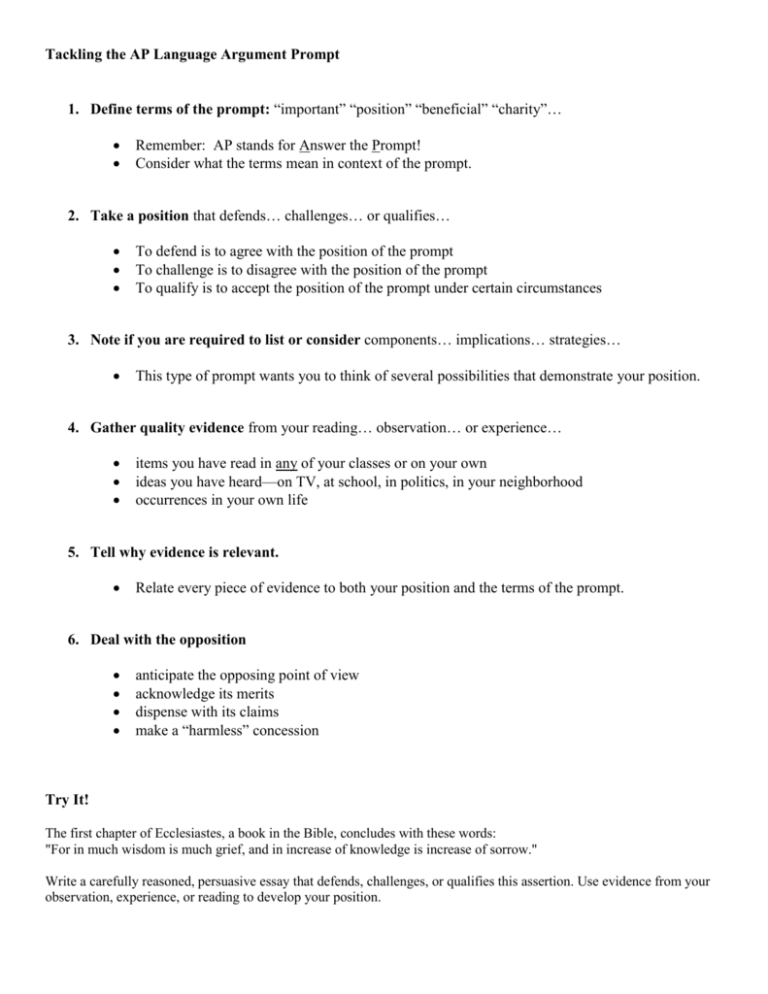
Tackling the AP Language Argument Prompt 1. Define terms of the prompt: “important” “position” “beneficial” “charity”… Remember: AP stands for Answer the Prompt! Consider what the terms mean in context of the prompt. 2. Take a position that defends… challenges… or qualifies… To defend is to agree with the position of the prompt To challenge is to disagree with the position of the prompt To qualify is to accept the position of the prompt under certain circumstances 3. Note if you are required to list or consider components… implications… strategies… This type of prompt wants you to think of several possibilities that demonstrate your position. 4. Gather quality evidence from your reading… observation… or experience… items you have read in any of your classes or on your own ideas you have heard—on TV, at school, in politics, in your neighborhood occurrences in your own life 5. Tell why evidence is relevant. Relate every piece of evidence to both your position and the terms of the prompt. 6. Deal with the opposition anticipate the opposing point of view acknowledge its merits dispense with its claims make a “harmless” concession Try It! The first chapter of Ecclesiastes, a book in the Bible, concludes with these words: "For in much wisdom is much grief, and in increase of knowledge is increase of sorrow." Write a carefully reasoned, persuasive essay that defends, challenges, or qualifies this assertion. Use evidence from your observation, experience, or reading to develop your position.
